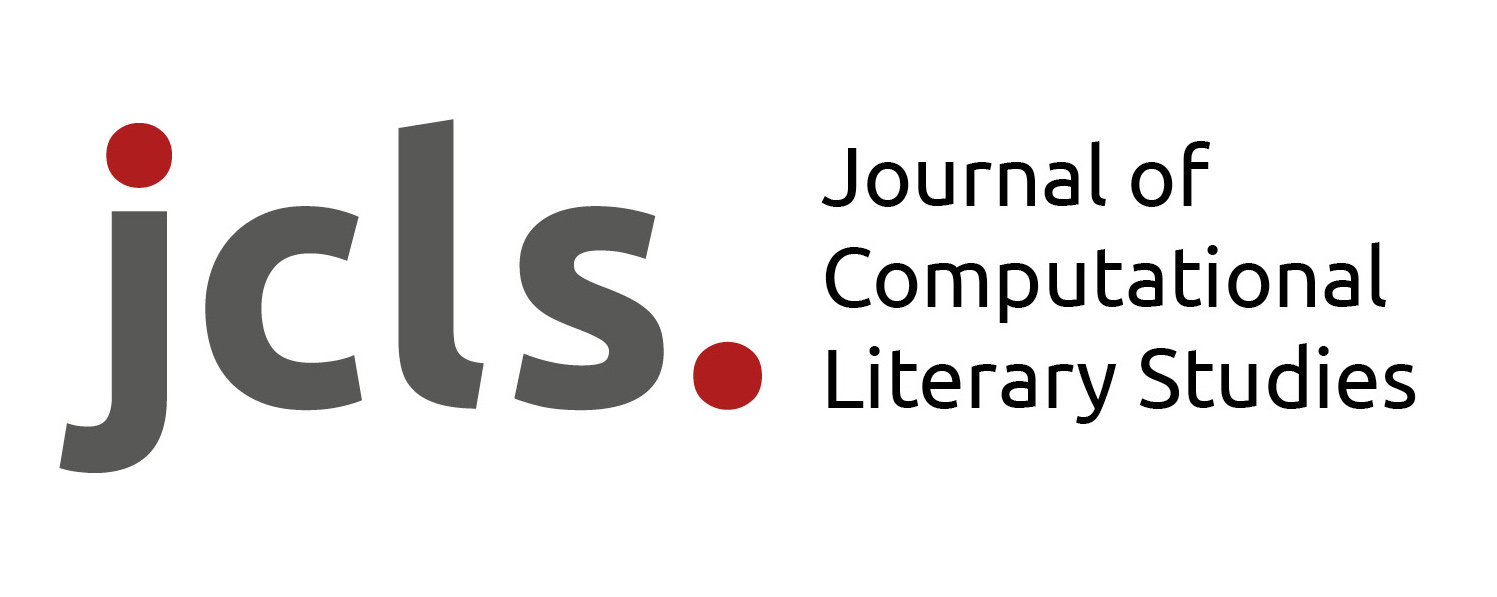Mission Statement
The Journal of Computational Literary Studies (JCLS) is an international, open access, peer-reviewed online journal dedicated to all aspects of computational approaches to Literary Studies. With its launch, JCLS responds to the increasing differentiation of subfields within the Digital Humanities, an ongoing process in which Computational Literary Studies has already gained considerable maturity and visibility.
JCLS therefore provides a publishing platform for work on the development, the application, and the critique of computational approaches to Literary Studies. The journal seeks to expand the spectrum of computational methods for the analysis of literary texts and their (cultural, social, historical, performative) contexts with innovative methods appropriate to the subject. It provides a forum to address issues such as building literary corpora, identifying peculiarities of literary texts, domain adaptation of methods, operationalization of concepts, annotation of texts, evaluation of measures, interpretability and transparency of results, and reproducibility of research. JCLS also acknowledges the debatability of the core concepts of Computational Literary Studies, computationality and literarity, and encourages submissions addressing these from historical, cultural and other perspectives.
Contributions to JCLS need to be in English, but the journal is decidedly not limited to English-language literatures. Rather, JCLS explicitly takes into account the variety of the world's literary traditions across languages and cultures and encourages scholars of all languages and literatures to submit papers. JCLS uses open standards to deliver journal content and publish peer-reviewed articles. JCLS is committed to the openness and long-term availability of data and code (see information on Data & Code Availability). JCLS is furthermore committed to the European Code of Conduct for Research Integrity.
JCLS will organize – together with changing local organizers – an annual international conference on Computational Literary Studies. For papers submitted to the conference, JCLS provides an innovative review approach combining the peer reviewing process for conference proceedings with the peer reviewing process of a journal. Adapting the proceedings approach, JCLS publishes accepted papers prior to the annual conference, thus enabling conference participants to read the contributions in advance and fostering in-depth discussions during the conference. Authors are invited to revise their articles after the conference. This second version is then reviewed once more and published as the final version of the article.
JCLS provides two publication tracks.
- The conference + journal
track features the annual international conference. An
annual call for papers in this track is published in early summer,
submissions will be due at about the end of the year, and acceptance
will be communicated in March. Accepted articles will be published in
May as the conference version and presented at the conference in June.
After the conference, authors are invited to revise their articles based
on the insights from the conference. The final journal version will
usually be published between October and December. Please see the Call for Papers.
- In its journal-only track, JCLS accepts submissions independently from the conference. Contributions can be submitted at any time and will be published in a rolling issue as soon as they have passed peer review. Please see the Call for Papers.
Journal software
JCLS relies on two pieces of software: The journal management and publication system Janeway, developed and run by the Open Library of Humanities, and the online text editor Overleaf. Our technology partner is the University and State Library Darmstadt.
